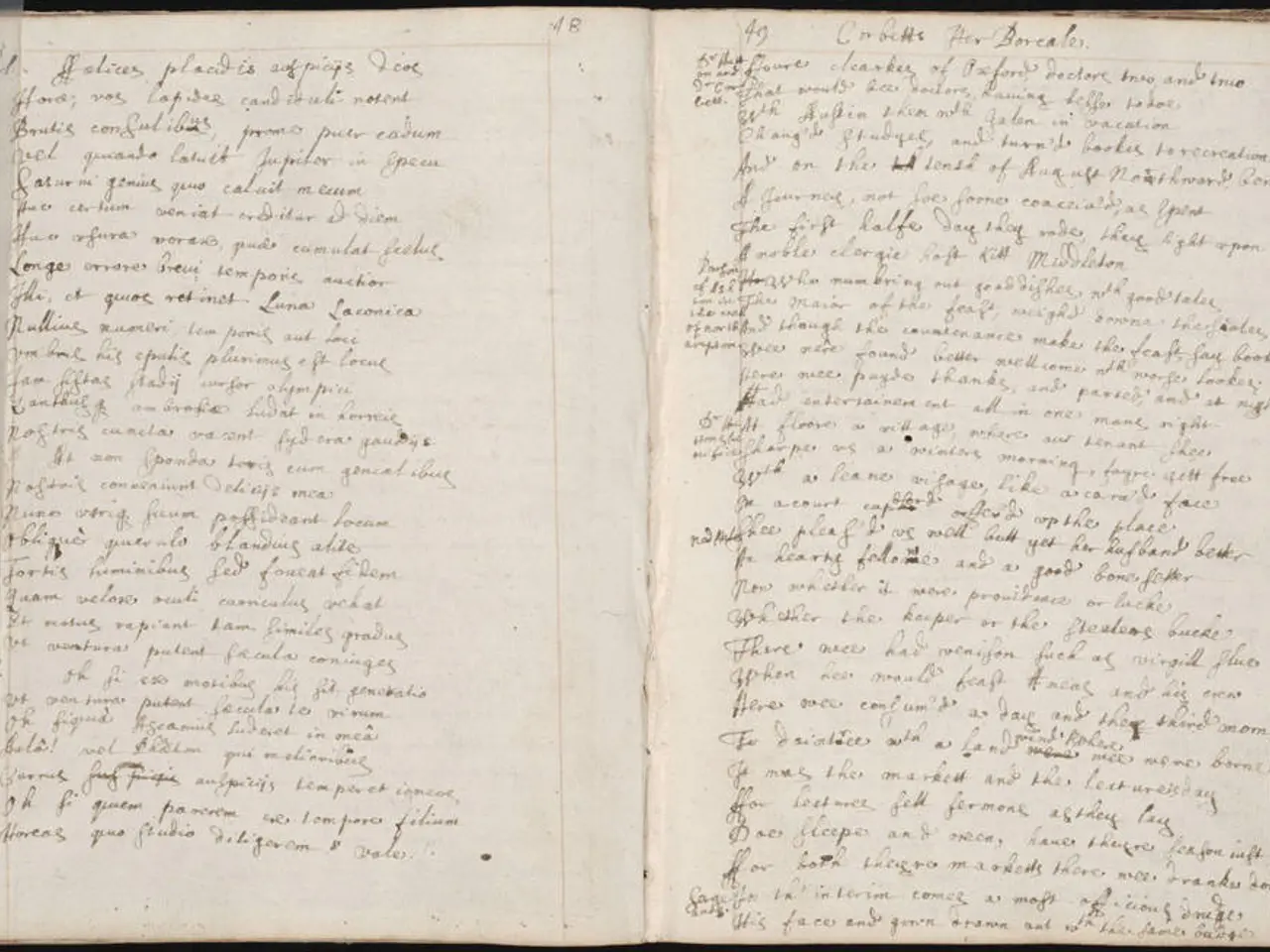Challenging Biblical Doctrines: Unveiling Hidden Truths at Theological Seminaries
In the realm of religious scholarship, a captivating debate unfolds, as historical-critical analysis intertwines with deeply held religious convictions. This tension is evident in the interpretation of certain biblical passages, particularly those that seem to predict the end of the world.
For instance, verses in Mark, Matthew, and other gospels, such as "this generation will not pass away before all these things take place," are interpreted by some scholars as failed end-of-the-world predictions. However, when the predicted apocalypse failed to occur, early Christian theology evolved to reinterpret these sayings in more symbolic or spiritual terms.
This reinterpretation is not exclusive to the New Testament. The story of Jephthah sacrificing his daughter in Judges 11 is presented as an example of how war, vows to God, and the taking of innocent life were sometimes intertwined in Israelite tradition. Yet, archaeological evidence suggests a lack of a large-scale migration from Egypt and detectable Egyptian cultural influence in early Israelite settlements, casting doubt on some biblical narratives.
The Old Testament describes the conquest of Canaan, commanding the Israelites to wipe out entire Canaanite populations and destroy their cities completely. However, the moral principle embedded in these texts is questioned by critical scholars, who argue that archaeological evidence doesn't support a mass slaughter. Evangelical scholars, on the other hand, defend these orders, citing the Canaanites' alleged sins.
The biblical narrative of the Israelites' enslavement in Egypt and subsequent miraculous escape is also under scrutiny. This raises questions about prophecy "after the fact" as a persuasive rhetorical device in scripture. For example, the Book of Daniel may have been written in the 2nd century BCE, after many of the "predicted" events had already occurred.
In the New Testament, questions about authorship arise. Many New Testament letters attributed to Paul were likely written by others, decades after his death. Forgery was not uncommon in the ancient world, especially when authors wanted to claim the authority of a revered figure. Most scholars consider only seven of the 13 letters credited to Paul as authentically his. The name of one of the Bible critics dealing with this issue is Rudolf Bultmann.
This exploration of biblical history and authorship presents a dilemma for some pastors. Some fear unsettling their congregations or losing their livelihoods by revealing the findings of historical-critical scholarship. Yet, for others, the choice is clear: reveal the findings, no matter the cost.
This clash between evangelical and critical scholars reflects a larger tension in contemporary faith communities: what happens when historical-critical scholarship collides with deeply held religious convictions? As we delve deeper into the study of the Bible, these questions continue to surface, challenging our understanding and interpretation of sacred texts.
Read also:
- Peptide YY (PYY): Exploring its Role in Appetite Suppression, Intestinal Health, and Cognitive Links
- Toddler Health: Rotavirus Signs, Origins, and Potential Complications
- Digestive issues and heart discomfort: Root causes and associated health conditions
- House Infernos: Deadly Hazards Surpassing the Flames








